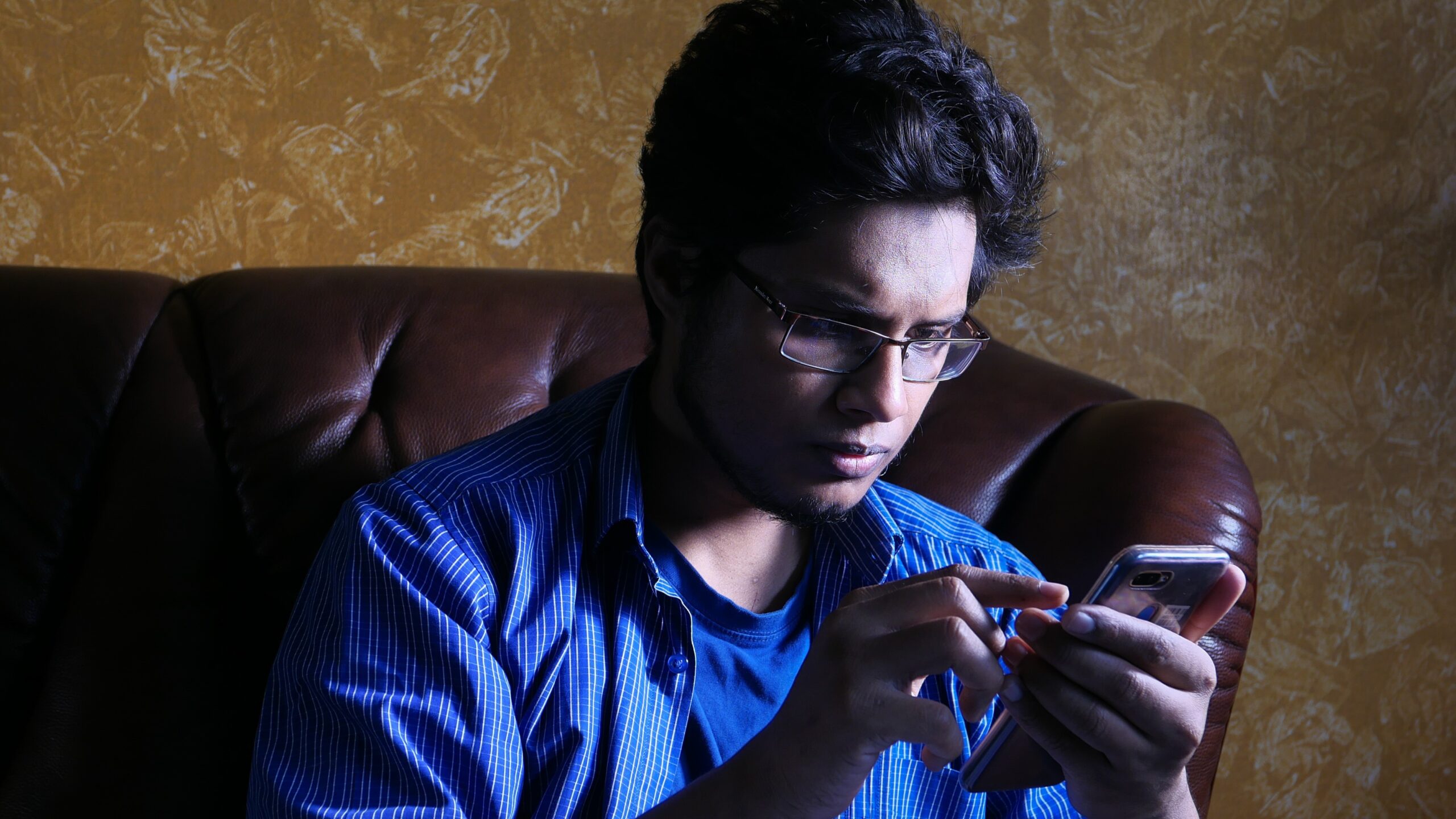
Is Gambling Addiction Treated Seriously?
Gambling isn’t something new in India—it’s been around for centuries. From dice games in ancient epics like the Mahabharata to modern online casinos and betting apps, the fascination with gambling has only grown. But here’s the million-rupee question: while the games have evolved, has the country’s attitude toward gambling addiction changed with them?
The Rise of Gambling in the Digital Age
Let’s face it, gambling today isn’t just about shady dens and physical casinos. With the explosion of smartphones and easy access to the internet, online gambling is booming like never before in India. No longer do players need to dress up, leave their homes, or even enter a physical casino to try their luck. Everything can now be done with a few taps on a smartphone or clicks on a computer, and that convenience has made online gambling highly attractive.
The key reason for this rise is the sheer convenience of gambling from home. Gone are the days of driving to a casino or finding a nearby betting shop. Today, whether it’s sports betting, playing online slots, or joining a live casino game, you can do it all from the comfort of your own couch. The ease of access, especially in a country like India, has made online gambling a tempting choice for those looking for quick entertainment or the chance to win big.
Anonymity is another driving factor. Online platforms provide a space where gamblers can place their bets without fear of judgment from others. Unlike the more public nature of traditional gambling settings, players can gamble in private, free from prying eyes. This sense of privacy is often appealing to those who want to keep their activities hidden, especially when the stakes are high, and emotions are running even higher.
Variety is the spice of life, and online gambling offers it in abundance. With just a few clicks, gamblers can access a wide range of games—from classic card games like teen patti to international sports betting markets and even modern video slots. This variety ensures that there’s something for everyone, no matter their interests. And let’s not forget the allure of bonuses—promotions and “free” money that gambling platforms offer to attract new players. While these perks can make the experience more exciting, they can also lead to players being lured into risky behaviors.
What Exactly Is Gambling Addiction?
Gambling addiction, also known as gambling disorder, is not just about losing money—it’s a complex condition that involves a compulsive urge to gamble despite the negative consequences it brings to a person’s life. It goes beyond just occasional betting or playing for fun. For someone with a gambling addiction, gambling becomes the central focus of their life, overpowering other important aspects such as work, relationships, and personal well-being. This addiction can have severe financial, emotional, and mental repercussions for the person involved and their loved ones.
- Chasing Losses: One of the most common signs of gambling addiction is the compulsive behavior of chasing losses. After losing money, an individual may feel the need to continue gambling in an attempt to recover their losses, often resulting in even bigger financial problems.
- Lying to Family and Friends: People with gambling addiction often lie to cover up their activities. This may involve hiding the amount of time spent gambling or downplaying the severity of their losses. The dishonesty can cause a breakdown in relationships, leaving loved ones feeling betrayed and confused.
- Using Gambling as an Escape: Gambling may be used as a coping mechanism for dealing with stress, anxiety, or emotional pain. Instead of addressing their issues directly, the addicted person might turn to gambling as a temporary escape, which only exacerbates the underlying problems in the long run.
- Borrowing or Stealing Money: As the addiction deepens, a person may resort to borrowing money from friends, family, or even strangers to fund their gambling habit. In extreme cases, some individuals might even steal money to continue gambling, further damaging their personal relationships and trust.
- Feeling Restless or Irritable When Not Gambling: A key indicator of gambling addiction is the intense feelings of restlessness or irritability that can occur when the person is not gambling. The craving for that rush of excitement or the feeling of winning becomes overpowering, leading to mood swings and emotional instability.
The Legal Grey Zone: What the Law Says
| Aspect | Legal Situation | Details | Impact | Challenges |
| State vs Central Confusion | States have the power to decide if gambling is legal | While the central government laid out basic regulations, each state decides the legality of gambling within its jurisdiction. | This creates a patchwork system where gambling laws differ from state to state. | No uniform national law on gambling, leading to confusion. |
| Online Gambling Regulation | Online gambling is mostly unregulated | The internet has outpaced legal frameworks, and most online gambling platforms operate in a grey area, with few regulations in place. | Players can gamble on unregulated platforms, increasing the risk of fraud and addiction. | Lack of regulation makes it hard to monitor or control online gambling. |
| Skill-Based Games | Skill-based games like rummy and poker are often legal | Games that involve skill (such as rummy or poker) are considered legal in many states, as they are classified differently from pure games of chance. | Skill-based games are allowed in several states, providing an avenue for legal gambling. | Legal status varies between states, creating confusion over what is legal. |
| Luck-Based Games | Luck-based games are usually banned | Games of chance like traditional casino games and sports betting are often banned or heavily regulated in many states. | Luck-based games are usually prohibited, which limits the options for gamblers. | The law often fails to distinguish between online and offline luck-based games. |
| Lack of Legal Framework for Addiction | No solid legal backbone to tackle online gambling addiction | There is no dedicated national framework or law to address gambling addiction, especially with online gambling. | Online gambling addiction remains largely unchecked, with no national program or policy in place to help addicts. | The absence of a clear legal framework complicates the development of support systems for addiction. |
Social Stigma: The Silent Killer
Let’s not beat around the bush—gambling addiction is often swept under the rug in Indian households. In many cases, it’s considered a taboo topic, something that families shy away from discussing openly. The stigma surrounding gambling addiction is so deeply ingrained that those affected often feel they must suffer in silence, fearing societal judgment or the loss of family honor. This reluctance to speak up about the issue only makes it harder for individuals to seek help or even acknowledge they have a problem in the first place.
One of the main reasons people don’t speak up is the fear of social judgment. In a society where reputation is highly valued, admitting to a gambling problem can feel like admitting to a personal failure. The fear of being labeled as irresponsible or weak can be overwhelming, especially when family and friends may not understand the depth of the addiction. Instead of seeking support, individuals may isolate themselves, adding to their feelings of shame and guilt.
Another factor that prevents people from addressing gambling addiction is the widespread belief that it’s just a “bad habit,” not an illness. Many people still don’t view gambling addiction as a serious condition that requires treatment. Instead, it’s seen as something that can be easily controlled or just a form of indulgence that went too far. This misconception minimizes the severity of the problem and prevents individuals from recognizing that their addiction is beyond their control, further delaying any attempts to seek help.
In addition to the social and cultural pressures, there is also a lack of awareness about treatment options. Many families and individuals simply don’t know where to turn for help. Counseling services, addiction support groups, or rehabilitation programs may not be widely advertised or accessible, especially in rural areas. Without knowledge of available resources, individuals may feel trapped in their situation, unable to break free from the grip of gambling addiction.
Is Gambling Addiction Recognized as a Mental Health Disorder in India?
The World Health Organization (WHO) classifies gambling addiction as a behavioral disorder, acknowledging it as a serious condition that requires treatment. However, in India, the recognition and treatment of gambling addiction are not as straightforward. The approach to gambling addiction can vary significantly depending on who you ask, and it is often not treated with the urgency it deserves.
- Mental Health Practitioners: Some psychiatrists and mental health professionals in India do take gambling addiction seriously and recognize it as a disorder that needs attention. They understand the behavioral and psychological impacts of the addiction, but this recognition is not always widespread.
- Impulse Control Disorder: Gambling addiction is often diagnosed as an Impulse Control Disorder, a condition where an individual has difficulty controlling their urges to engage in certain behaviors, even when they know these actions are harmful. This diagnosis allows mental health professionals to understand the addiction better and recommend appropriate treatments.
- Cognitive Behavioral Therapy (CBT) and Medication: Treatments for gambling addiction in India generally involve Cognitive Behavioral Therapy (CBT), a type of therapy that helps individuals identify and change harmful thought patterns and behaviors. In some cases, medication may also be used to help manage symptoms, especially if there are co-occurring mental health conditions like anxiety or depression.
- Lack of Proactive Help: Unfortunately, despite these treatments being available, gambling addiction is rarely addressed proactively. In most cases, help is only sought when the individual has already recognized the problem themselves or when family members insist on treatment. This delay in seeking help means that many people with gambling addiction suffer for longer periods before getting the support they need.
Available Treatment Options in India
| Treatment Option | Details | What’s Offered | Challenges | Access |
| Psychiatric Clinics & Hospitals | Available in cities like Mumbai, Delhi, and Bengaluru | Many psychiatrists specialize in substance abuse but may also treat gambling addiction. | Focus is primarily on substance abuse; gambling addiction is often secondary. | Long wait times for appointments; expensive treatment. |
| Rehabilitation Centers | Private centers offer 30-90 day programs | Holistic therapies, including yoga, meditation, and group therapy, aimed at addressing addiction. | Often expensive, and many are not covered by insurance. | Limited availability; often unaffordable for many. |
| Online Counseling Platforms | Platforms like BetterHelp, YourDOST, and Practo offer counseling | Convenient, remote counseling with professional support available via online platforms. | Still a relatively new space; lack of specific training in gambling addiction. | Access through the internet; not all counselors specialize in gambling addiction. |
| Government Initiatives | Limited, with few national programs | Some states offer government-funded programs for addiction, but they’re mostly substance-focused. | Government-funded programs are often underfunded and lack gambling-specific resources. | Not widely available; services may be under-resourced. |
| Support Groups | Peer-based support groups like Gamblers Anonymous | Group therapy where individuals with similar experiences can share and support each other. | Lack of professional supervision; stigma around attending group sessions in some regions. | Localized; not always easy to find or attend regularly. |
Government Involvement: A Drop in the Ocean
The Indian government has largely been silent on the issue of gambling addiction. Despite the growing number of people affected by this problem, there has been little action taken to address the issue on a national scale. Gambling addiction remains a relatively neglected area within the country’s broader public health landscape, and there are no significant government-led efforts to tackle this growing problem. While the government regulates gambling in certain areas, there is a glaring lack of attention to the specific needs of individuals struggling with addiction.
One of the most obvious gaps is the absence of a national helpline for gambling addiction. In many countries, helplines provide immediate assistance and guidance to those in need, offering a vital resource for individuals seeking help. However, in India, there is no centralized, easily accessible number that people can call for support, leaving those with gambling problems without a direct line to receive assistance. Without such a resource, individuals in crisis are often left to fend for themselves, compounding the difficulty of seeking treatment.
Another missing element is the lack of state-funded rehab centers specifically dedicated to gambling addiction. While there are private rehabilitation centers that cater to various forms of addiction, including substance abuse, there are few state-supported facilities specifically targeting gambling. The cost of private rehab centers is a significant barrier for many individuals, especially in rural areas, where resources are already limited. Without government-funded options, people from lower-income backgrounds are often unable to access the help they desperately need.
Perhaps the most glaring issue is the absence of awareness campaigns or public health initiatives focused on gambling addiction. While there are awareness programs for substance abuse and other mental health issues, gambling addiction remains largely invisible in public health efforts. This lack of awareness perpetuates the stigma surrounding gambling addiction, making it even harder for individuals to come forward and seek help. In the absence of national campaigns, many people suffering from gambling addiction continue to suffer in silence, with little support from either the government or society at large.






